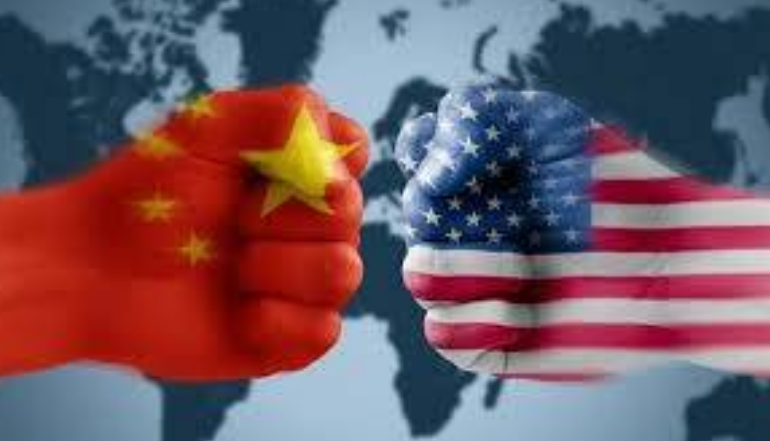Washington (Web Desk): The global economic landscape has been significantly impacted by the latest series of tariff impositions announced by the United States (US) under President Donald Trump, with the new measures coming into effect on Wednesday.
The US has now placed levies of up to 100% or more on a wide range of goods, with China facing the steepest increases. Markets were immediately rattled, continuing the downward trend seen over the past week, as the US raised its tariff rate on imports from various regions, including the European Union and Japan, to 12%, compounding fears of a full-blown trade crisis.
The United States' punitive actions against China are among the most severe, with tariff rates on Chinese products now exceeding 100%, a figure that has escalated dramatically since Trump’s second term began. Despite this, Trump insists that China is eager for a deal, although he maintains that the onus is on Beijing to initiate negotiations.
His administration has also emphasized that it is pursuing selective agreements with key allies such as Japan and South Korea, while countries like Argentina, Vietnam, and Israel have signaled willingness to reduce their tariff rates in response to the US stance.
The financial markets reacted swiftly to these developments. In Asia, stock indices plunged, with notable declines in Hong Kong and Japan, signaling investor fear as tariff-related risks continued to mount. Even markets in Taiwan and South Korea saw sharp drops, further amplifying the volatility.
Foreign exchange markets were not immune to the strain, with the South Korean won reaching its lowest point against the dollar in more than a decade and the Chinese yuan sinking to unprecedented lows, as Beijing’s central bank worked to devalue the currency in an attempt to soften the economic blow.
However, analysts warn that these measures will not be enough to counter the severe impact of the escalating tariff war.
Oil prices followed suit, dipping below the $60 mark for the first time in nearly two years, signaling a broader loss of confidence in global economic stability.
Investors flocked to bonds, a traditional safe-haven asset, as equities continued to lose value across the board.
The ripple effect was felt globally, with forecasts predicting a significant downturn in economic growth.
Leading economic institutions, including JP Morgan, have pegged the probability of a worldwide recession at 60% by the end of the year.
Despite the growing international unrest, the European Union (EU) has sought to mitigate the escalating tensions. Ursula von der Leyen, the EU’s chief, underscored the importance of maintaining global economic stability and urged all parties to avoid further escalation.
China's Premier Li Qiang reassured the EU that China remains confident in its ability to weather the economic storm, even as the country braces for the full effects of the US tariffs.
Meanwhile, the EU is preparing its countermeasures, including imposing tariffs of up to 25% on a range of US goods, such as soybeans and motorcycles, in retaliation for the US steel and aluminum tariffs.
In the midst of these developments, internal divisions within the US administration also became apparent.
Prominent figures, including tech mogul Elon Musk, openly criticized the White House's trade policies, with Musk calling out senior trade advisor Peter Navarro for his remarks about Tesla, suggesting a growing rift between the business community and the current administration's economic strategy.
As global markets brace for more uncertainty, the path forward remains unclear, with economists and political leaders warning of the profound economic consequences that could unfold as the trade conflict intensifies.


